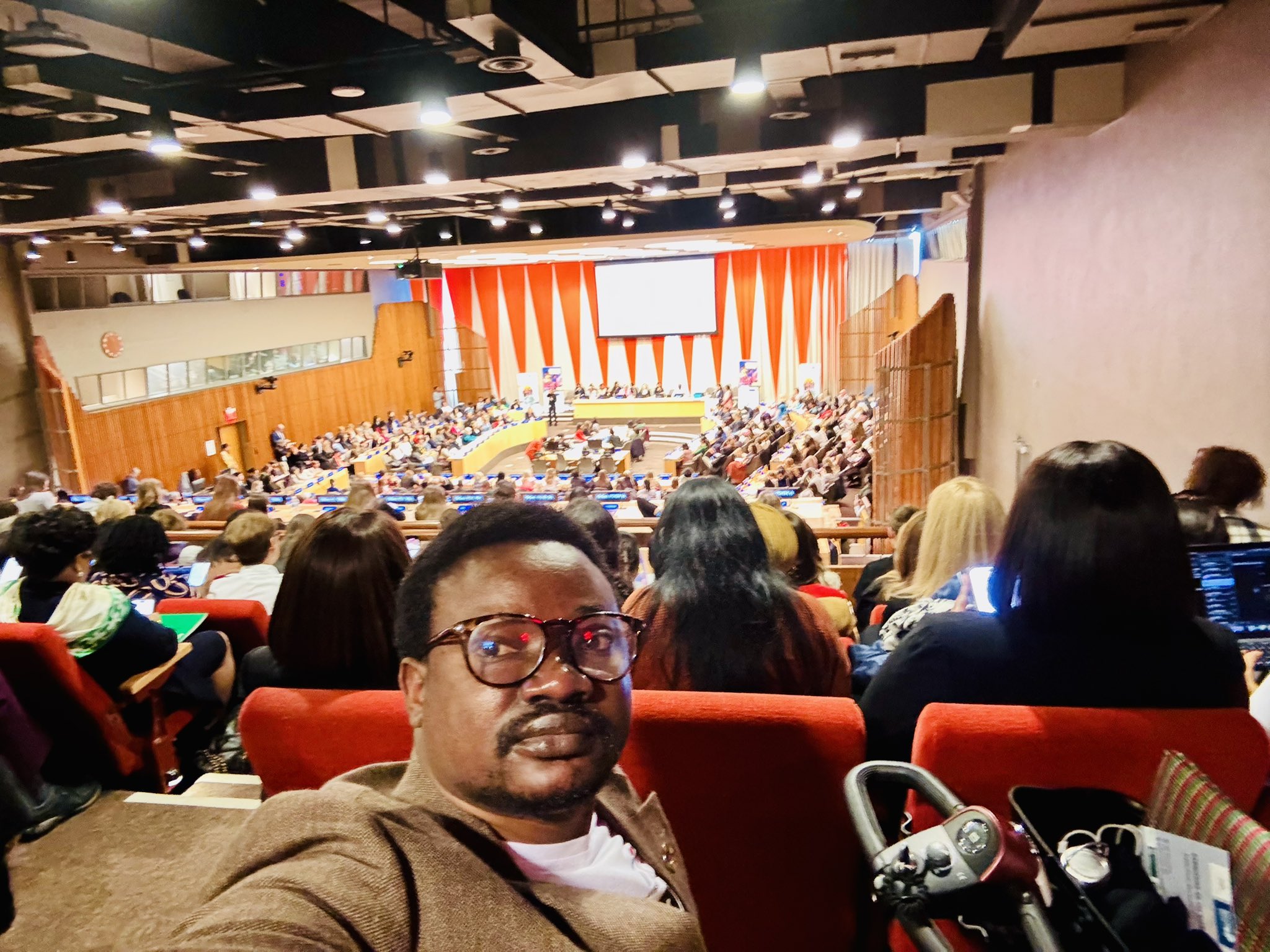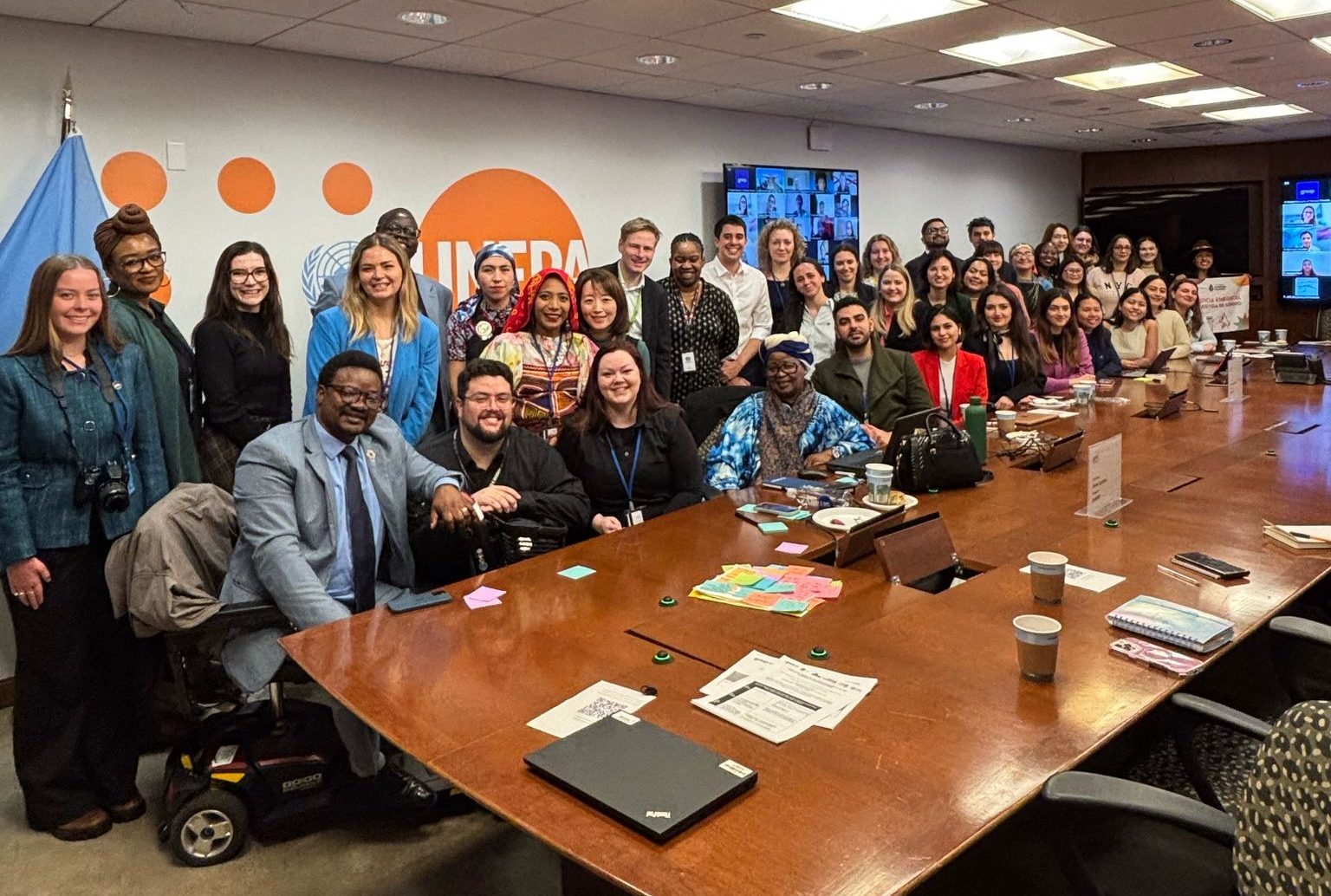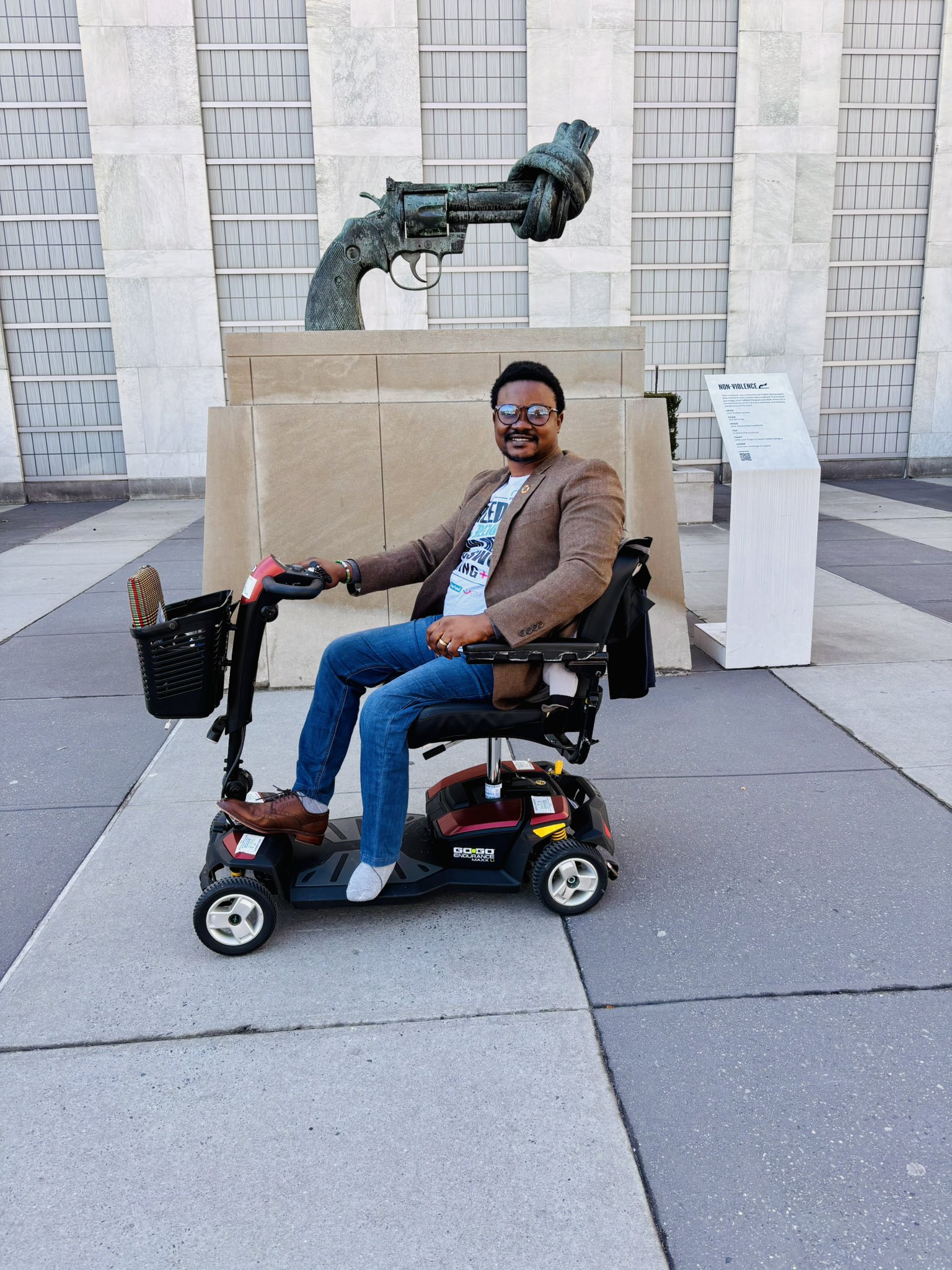Blog
Empowering Voices: Reflecting on CSW69 and the Path to Gender Equality and Freedom of Religion
A reflective piece by Sylvain Obedi, Co-founder and Executive Director of Enable the Disable Action, on the ‘Joint Initiative for Strategic Religious Action (JISRA)’ Project Mission to the 69th Commission on the Status of Women in New York City.

Sylvain Obedi attending the event POWER4Girls: Invest in Girls Transform the World as part of CSW69 in New York. March 2025.
As I reflect on my experience at the 69th Commission on the Status of Women (CSW69), I am filled with a sense of purpose and determination. As a young peacebuilder from the Democratic Republic of Congo, this was my first time attending such a significant gathering focused on advancing gender equality and promoting Freedom of Religion or Belief (FoRB). The week was a whirlwind of workshops, discussions, and networking, all centered around empowering women and girls, particularly those from marginalized communities.
Throughout the week, I engaged in various dialogues that illuminated the challenges faced by women and young women of faith. I shared insights from my work with, “Enable the Disable Action,” where I advocated for the inclusion of youth with disabilities in all aspects of society. The intersectionality of gender, disability, and faith was a recurrent theme, reminding us that advocacy must be inclusive to be effective.

Sylvain Obedi attending the Informal Dialigue with Young Activists on the 2025 Peacebuilding Architecture Review (PBAR) as part of CSW69 in New York. March 2025.
Platforms like CSW are vital for advocating for gender equality and FoRB because they provide a space for voices that are often marginalized to be heard. CSW69 brought together delegates from around the world to discuss pressing issues, share best practices, and forge partnerships. It was inspiring to witness the collective effort to address systemic inequalities and to amplify the voices of women who are often left out of decision-making processes. These conversations are crucial; they not only inform policy but also create a sense of solidarity and shared responsibility among stakeholders.
As a person of faith, I am committed to advancing the Beijing+30 Agenda through my work. I believe that faith can be a powerful force for good, enabling us to challenge discrimination and promote inclusivity. In my advocacy, I emphasize the importance of recognizing the unique experiences of women and young women of faith, particularly those with disabilities. By fostering dialogue within communities of faith, we can challenge harmful norms and practices that hinder gender equality and FoRB. My approach is rooted in the belief that empowerment comes from within, and by uplifting the stories and experiences of those I represent, I strive to create a more inclusive narrative.
To ensure the meaningful inclusion of women and young women of faith in advancing women’s empowerment and FoRB, policymakers and international stakeholders must take actionable steps:
- First, they must prioritize inclusive policies that consider the diverse experiences of women, particularly those from marginalized backgrounds. This includes actively seeking input from women and young women of faith in policy discussions and decision-making processes.
- Additionally, there should be a commitment to funding programs that support the leadership development of young women of faith. By investing in their education and capacity-building, we can equip them with the tools they need to advocate for their rights and the rights of their communities.
- Lastly, creating safe spaces for dialogue and collaboration between faith leaders and women’s rights organizations is essential to fostering understanding and cooperation.
Attending the CSW as a young man of faith was a transformative experience that deepened my understanding of gender equality and the vital role men can play in promoting social justice. Observing the diverse perspectives shared by women and allies from around the world made me realize that faith can be a powerful catalyst for change. It is essential for men of faith to engage actively in these conversations, not only as supporters but as co-creators of a more equitable society. I think it`s critical to recognize our own privileges and the ways in which traditional gender norms have shaped our views and behaviors. By embracing vulnerability and humility, we can foster meaningful dialogues that challenge stereotypes and promote mutual respect.
To engage more men and young men in these critical discussions, it is important to create safe spaces where they can express their thoughts and feelings without fear of judgment. Workshops, mentorship programs, and community outreach initiatives tailored specifically for men can help demystify the issues surrounding gender equality and encourage a sense of shared responsibility. Additionally, leveraging platforms within faith communities to highlight male allies and role models can inspire younger generations to take an active stance in advocating for women’s rights. By emphasizing the importance of partnership and collaboration, we can cultivate a culture where men are seen not just as bystanders, but as integral allies in the pursuit of equity and justice for all.
As I conclude my reflections on CSW69, I urge you to join me in advocating for the empowerment of women and young women of faith. Let us work together to create a world where everyone, regardless of their gender, ability, or belief, has the opportunity to thrive. My call to action is simple yet profound: Support inclusive policies that uplift the voices of women and young women of faith. Together, we can build a more equitable and just society.
In solidarity, let us take meaningful steps towards a future where everyone can participate fully in the journey toward gender equality and freedom of religion or belief. The voices of women matter, and together we can amplify them for a brighter tomorrow.

About Sylvain Obedi
Sylvain Obedi is a passionate young peacebuilder, disability rights advocate, and climate justice activist from the Democratic Republic of Congo (DRC). As the co-founder and Executive Director of Enable the Disable Action.
Sylvain is dedicated to creating a DRC where people with disabilities can live dignified and independent lives. Sylvain’s advocacy efforts focus on promoting the participation and inclusion of youth with disabilities in all aspects of society.
Follow the Peacemakers Network on social
